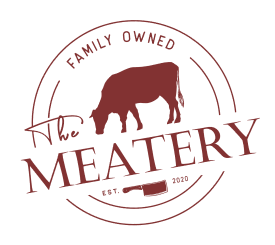What is the Highest Quality Beef in the World?
When it comes to premium beef, Japanese Wagyu stands unrivaled in global gastronomy. Celebrated worldwide for its extraordinary marbling, exceptional tenderness, and unparalleled flavor, Wagyu beef derives its quality from centuries-old breeding and farming practices.
The term "Wagyu" literally translates to "Japanese cow," reflecting its exclusive heritage. Wagyu cattle possess unique genetics that lead them to produce beef with an intricate, fine web of marbling—tiny veins of fat dispersed evenly throughout the muscle tissue. This marbling creates the famed melt-in-your-mouth experience, delivering a rich, buttery taste unmatched by other beef varieties.
Why is Wagyu Beef So Healthy?
Contrary to common perceptions about beef, Wagyu offers notable health benefits due to its unique nutritional profile. While Wagyu beef has a higher overall fat content, the quality of the fat makes all the difference.
Monounsaturated Fats and Heart Health
Wagyu beef is especially rich in monounsaturated fats, the same heart-healthy fats found in olive oil and avocados. These fats help to lower "bad" LDL cholesterol while raising "good" HDL cholesterol, promoting better cardiovascular health. Studies have also shown monounsaturated fats can assist in stabilizing blood sugar levels, supporting overall metabolic health, and even facilitating weight management when consumed in moderation.
Omega Fatty Acids
Beyond monounsaturated fats, Wagyu beef provides substantial levels of essential omega-3 and omega-6 fatty acids, critical components of a healthy diet. Omega-3 fatty acids are known for their anti-inflammatory properties, beneficial for brain health and reducing the risk of chronic diseases. The higher concentration of omega fatty acids sets Wagyu distinctly apart from traditional beef.
How Wagyu Compares to Other Beef
Several factors distinguish Wagyu beef from other beef types, making it uniquely beneficial and desirable:
Exceptional Marbling
No other beef matches the extensive marbling of Wagyu, directly correlating to its renowned tenderness and flavor. The evenly distributed intramuscular fat ensures Wagyu beef cooks evenly and remains incredibly juicy, delivering an unparalleled culinary experience.
Fat Composition
Unlike typical beef, which contains more saturated fat, Wagyu is dominated by monounsaturated fats. This distinctive difference enhances its nutritional profile, making Wagyu a healthier choice for consumers who still wish to enjoy high-quality beef.
Superior Tenderness
The meticulous breeding and rearing techniques that Wagyu cattle undergo produce beef that is remarkably tender. Due to its extensive marbling, Wagyu beef requires minimal cooking and minimal seasoning, letting the natural quality shine through with ease.
What Do Wagyu Cows Eat?
The quality of Wagyu is directly linked to the meticulous care in feeding and nurturing the cattle. Wagyu cattle diets typically include carefully balanced grain mixtures like rice straw, wheat, barley, and fresh grass, designed specifically to enhance the beef's marbling and flavor.
Some traditional Wagyu farms include beer or sake in their cattle's diet, a practice believed to relax the animals and further promote optimal marbling. However, the alcohol intake is always carefully controlled, ensuring animal welfare remains paramount.
Moreover, Wagyu farms often provide mineral-rich spring water or highly filtered water, contributing significantly to the cattle's overall health and meat quality.
The World's Most Expensive Wagyu: Matsusaka Wagyu
Among Wagyu varieties, Matsusaka Wagyu from Japan's Mie Prefecture reigns supreme in exclusivity and price. This luxurious beef comes from cattle raised on a specialized diet incorporating beer, sake, and high-quality, locally sourced grains. The animals regularly receive massages with sake to enhance marbling further, ensuring exceptional tenderness.
Due to limited production, strict farming practices, and unrivaled quality, Matsusaka Wagyu commands premium prices, often exceeding $200 per pound. Reserved for gourmet dining experiences, Matsusaka Wagyu epitomizes culinary luxury.
Serving Suggestions for Wagyu Beef
To fully appreciate Wagyu beef’s extraordinary characteristics, simplicity is essential in preparation. A brief grilling or pan-searing to rare or medium-rare perfection often provides the best sensory experience. Seasoning should be kept minimal; a sprinkle of coarse sea salt and freshly ground black pepper typically suffices.
Beyond steaks, Wagyu elevates traditional Japanese dishes such as:
-
Sukiyaki – A savory hot-pot preparation
-
Shabu-shabu – Delicately sliced beef cooked in flavorful broth
-
Tataki – Lightly seared beef served with refreshing, tangy sauces
Ethical Farming and Sustainability
As Wagyu beef’s popularity expands globally, ethical and sustainable farming practices become increasingly crucial. The best Wagyu producers prioritize animal welfare, providing stress-free environments with abundant grazing spaces and maintaining high-quality feed regimens.
When purchasing Wagyu, it’s essential to choose products from certified, reputable farms that demonstrate commitment to ethical standards (The Meatery only sources from the most ethically responsible farms!) Sustainable practices often include organic feed, reduced resource use, and careful waste management to minimize environmental impacts.
By supporting responsible Wagyu farming, consumers can enjoy this luxurious product with the assurance of humane animal treatment and environmental mindfulness.
Why Choose Japanese Wagyu?
Japanese Wagyu represents the pinnacle of culinary excellence due to its unparalleled flavor, tenderness, and nutritional benefits. Beyond its gastronomic superiority, Wagyu beef exemplifies responsible and sustainable luxury, making it a conscious choice for discerning consumers.
Explore our premium selection of Japanese A5 Wagyu beef at TheMeatery.com and experience firsthand the extraordinary qualities of the world’s finest beef.
Choosing Japanese Wagyu isn’t merely about indulging in luxury—it’s about embracing culinary artistry, ethical farming, and mindful consumption that respects both animal welfare and environmental sustainability.









